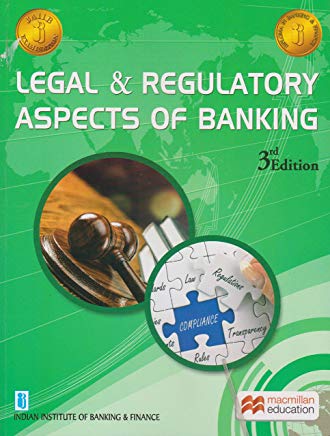JAIIB PPB Unit 28 - Types of Collaterals and their Characteristics (Year: 2019)
1. Security is of two types – primary and collateral.
2. Primary security is one that is regarded as the main cover for an advance, generally assets against which advance are made. Ex stocks for cash credits, machinery for term loans.
3. Collateral security is security other than primary security.
4. Mortgage of immovable property is either primary or collateral.
5. When doing mortgage, encumbrance certificate is taken for generally 13 years to check no encumbrance exists on the property.
6. The nature of charge created on lands and buildings is mortgage.
7. The nature of charge created on goods may be pledge or hypothecation.
8. In the case of key cash credit, the nature of charge created is pledge because in this case, the possession of goods is transferred to the banker.
9. In the case of open cash credit, the nature of charge created is hypothecation because in this case, the possession of goods is not transferred to the banker.
10. In both the key cash credit and open cash credit (means in either case of pledge or hypothecation), the title in the goods is not transferred to the bank.
11. The valuation of the stocks is done on the basis of cost price or market price whichever is less.
12. Documents of title to goods means a document used in the ordinary course of business as a proof of possession or control of goods authorising or purporting (claiming) to authorise either by endorsement or delivery (as per section 2(4) of Sales of Goods Act).
13. Goods represented by the documents are transferrable by endorsement and/or delivery of the documents. It looks like negotiable instruments but actually they are quasi-negotiable instruments.
14. Examples of documents of title are bill of lading, dock warrant, warehouse-keepers certificate, railway receipts, delivery orders, etc.
15. LICs are taken either as primary or collateral security.
16. Nomination under the LIC is automatically cancelled in the event of the assignment of the policy.
17. The nature of charge created while making advances against shares is a pledge.
18. Banks provide either demand loan or an over draft against the security of shares.
19. Shares should be in demat form and should be quoted in a recognised stock exchange.
20. Advances are granted against fully paid shares only.
21. No loan can be granted against the security of a private limited company.
22. No banking company can hold shares in any company of an amount exceeding 30 % the paid up share capital of that company or 30 % of its own paid up share capital and reserves whichever is less (BR Act 1949, section 19 (2)).
23. If the securities (of shares, debentures and PSU bonds) are in physical form, loans against to individuals should not exceed the limit of Rs 10 lac per borrower.
24. If the securities (of shares, debentures and PSU bonds) are in demat form, loans against to individuals should not exceed the limit of Rs 20 lac per borrower.
25. ESOP (Employees Stock Option Plan) is a scheme under which banks provide loan to employees for purchasing shares of their own companies.
26. Under ESOP, an employee can purchase to the extent of 90 % of the purchase price of shares or Rs 20 lac, whichever is less.
27. In case of advances against shares, a uniform margin of 50 % shall be applicable on all advances/financing of IPOs/issue of guarantees. And within this margin of 50 %, a minimum cash margin of 25 % shall be maintained in respect of guarantees issued by banks for capital market operations.
28. Banks also give loans under book debts.
29. Book debts mean account receivables (total of debit balance in the purchaser’s account).
30. Book debts can be financed by: factoring (lesson 7), forfeiting (outright i.e. complete purchase of book debts, and overdraft and cc against hypothecation of book debts.
31. Age of the book debts should be 3-6 months old, but not later.
32. Margin of 50 % is maintained in book debts.
33. Banks may provide advances against the security of time deposits such as FD or RD.
34. The nature of facility granted against the security of term deposits may either be a loan or an overdraft.
35. The nature of charge created while granting loan against time deposits is a pledge.
36. Normally loans up to 90 % of the deposit amount/accrued value of the deposit is provided.
37. The ROI charged on the loan would be 1 or 2 % above the interest rate offered on the deposits.
38. Loans given to a sole proprietor against deposit in the name of the proprietor concern should NOT be treated as 3rd party loan.
39. Loans given to a partner against deposit in the name of the firm should be treated as 3rd party loan and interest should be charged at the commercial rate.
40. If a company seeks loan against its deposit, a board resolution authorising the company to raise the loan should be obtained. The charge of pledge need not be registered with the ROC.
41. A deposit held under ‘Capital Gain Scheme’ is not eligible for loan.
42. The nature of charge created under the security of gold ornaments is a pledge.
43. No loan can be given against the security of pure gold.
44. Around 30 % margin is kept on the market value of the ornaments.
45. The nature of charge created under ‘Supply Bills’ is assignment
JAIIB Study Material
| JAIIB Paper 1 Study Material |
| JAIIB Paper 2 Study Material |
| JAIIB Paper 3 Study Material |


